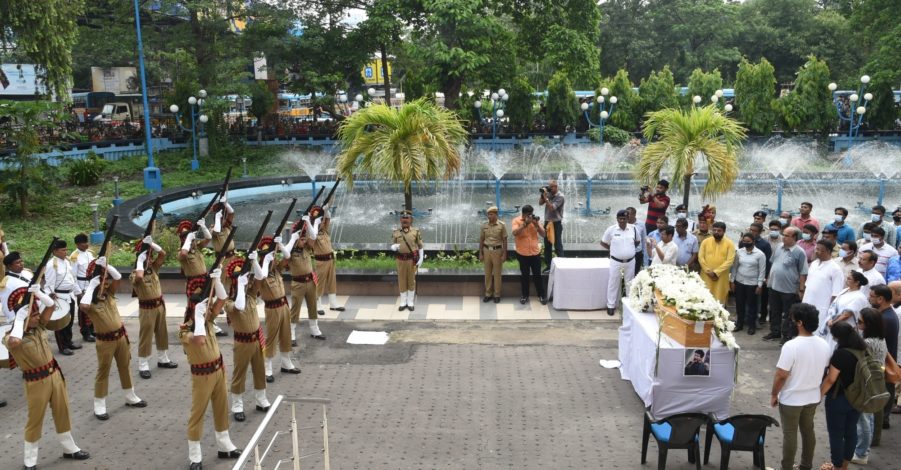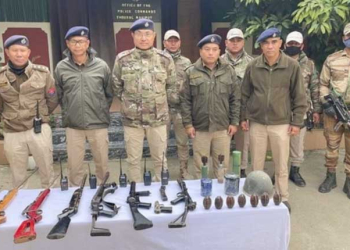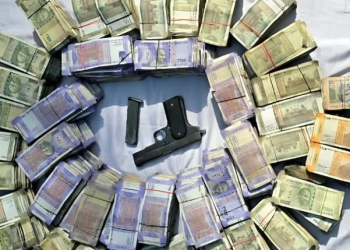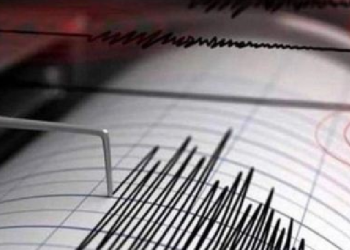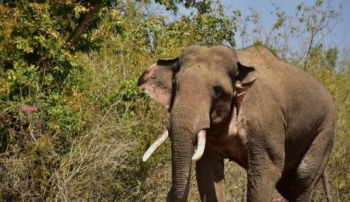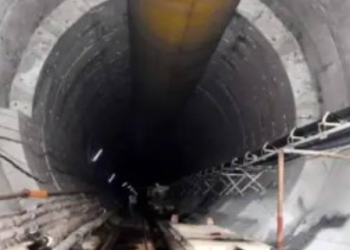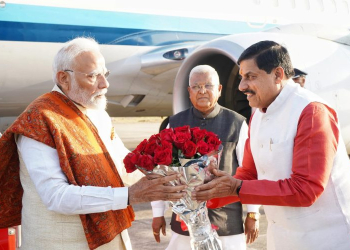Kolkata: The gun salute is a military affair and should be left at that, several armed forces officers, both serving and retired, said after singer Krishnakumar Kunnath, popularly known as KK, was accorded one by the West Bengal government last Wednesday after his sudden demise in Kolkata soon after a concert.
Three days before that, on May 29, Naik Bappaditya Khutia was accorded a gun salute by the Army before his cremation at Kharagpur in West Midnapore district. Khutia was on his way to the Line of Actual Control (LAC) in Ladakh with other soldiers when his vehicle fell into a gorge. Khutia was killed along with six of his colleagues.
“KK was certainly a great singer. He also performed for the armed forces on several occasions. However, the question that comes to mind is whether he deserved a gun salute? That too in Kolkata when his last rites were performed in Mumbai.
“The gun salute was originally meant for soldiers killed while performing their duties. It was later extended to heads of states (both present and former) and national figures such as Bharat Ratna recipients. No questions were therefore raised when Lata Mangeshkar received a gun salute. Unfortunately, it now seems to have turned into a fashion to accord such a salute to whoever a government chooses,” a senior officer in the Army said.
According to another officer, the importance of such ceremonies are getting diluted with scores of people, from local politicians to perfomers, receiving the honour.
“Earlier, it used to be a matter of pride for any town or village when a soldier from there received full military honours, including a gun salute, during his funeral. Nowadays few people care that a soldier gives up his life for the country and deserves that kind of respect. Maybe the armed forces should do away with the gun salute altogether. Fortunately, there is a Flag Code or we would find a Tricolour on every other body,” he said.
KK had performed at the Nazrul Mancha in Kolkata on May 31 and fell ill at the venue itself. There were initial reports of chaos and overcrowding at the Nazrul Mancha that could have caused the air-conditioning machines to malfunction.
These reports prompted many to claim that the Mamata Banerjee-led government in West Bengal attempted to tone down the accusations of administrative failure by according such a send-off to the departed star.
The preliminary autopsy report, however, pointed to a heart condition that KK was suffering from.
“There is no rule that governs who the state government can accord a gun salute to. In the past, we have accorded such honour to famous actors and singers from our state. So, why not to KK? After all, he was an honoured guest in our state,” said an administrative official at Nabanna, the state secretariat.
The official, however, admitted that he had no clue about the origin of the gun salute.
While it was customary for ships entering a foreign port to empty their cannons (without cannonballs) as a show of peace, shore batteries would also respond by emptying theirs. Normally, ships would have seven cannons on one side while shore batteries had 21. Hence, the concept of a 21-gun salute.
“As far as gun salutes accorded to soldiers are concerned, they are more of a solemn moment. During wars fought in the past, fighting stopped for some time to allow both sides to remove their injured and dead soldiers from the battlefield. Once this activity was completed, a three-shot volley would be shot to indicate that the fighting could commence.
“This is the origin of the gun salute accorded to a soldier. The honour guard comprises an uneven number of soldiers and three-shot volleys are fired. The bugles sound the Reveille immediately after this to alert soldiers that the war is still on. I don’t have a problem if police forces organise such ceremonies for their fallen colleagues but what the governments are doing is leading to trivialisation of the emotions involved,” another officer said.
(IANS)



